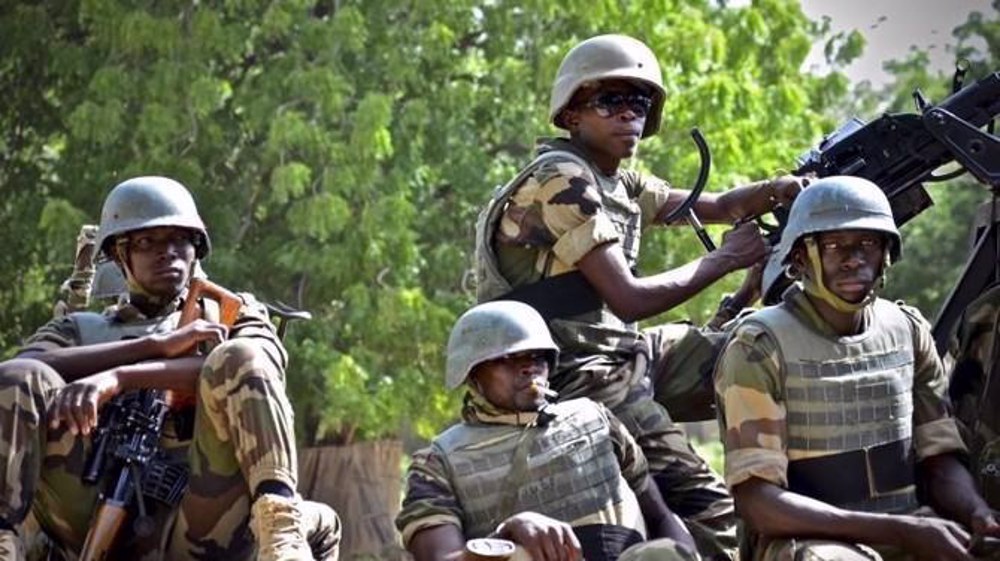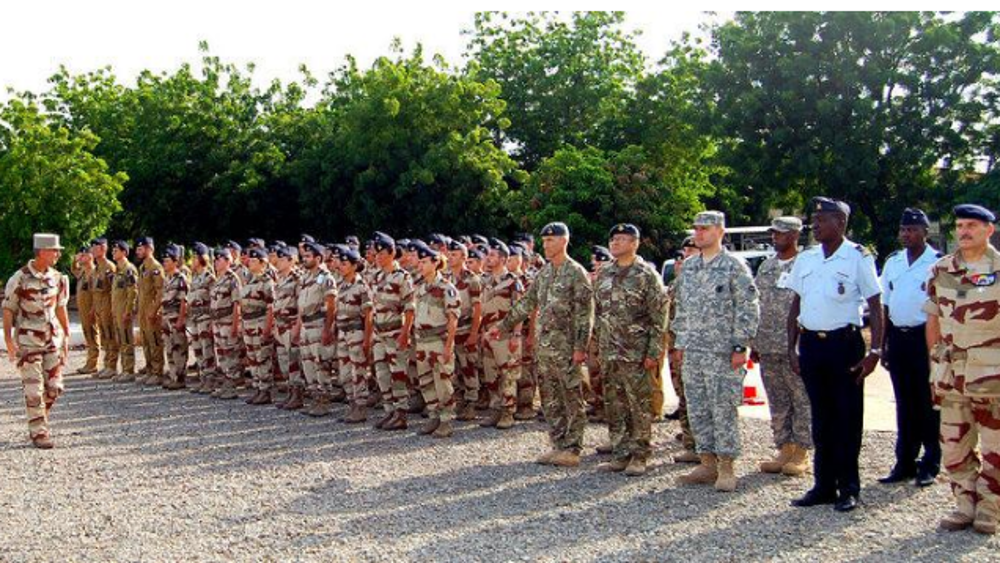Niger wrestles with security nightmare as death toll rises
Niger is grappling for ways to stem militant attacks that have claimed several hundred lives this year and risk inflaming tensions along ethnic lines.
The world's poorest nation finds itself pitted against a stealthy, mobile and ruthless foe yet lacks funds to bolster its struggling armed forces.
On Sunday, 137 people in nomadic camps were slaughtered in the Tahoua region, on Niger's western border, by armed men who arrived on motorbikes.
"Sixty kilometers, 100 kilometers (30 miles, 60 miles) from the capital, dozens and dozens of civilians can be killed and our armed forces are unable to respond," said Amadou Bounty Diallo, a security expert and former Nigerien soldier.
Militant attacks in western Niger began to be launched from neighboring Mali in 2015, adding to the security headache in the southeast posed by incursions from armed militants in Nigeria.
Thousands of people have been killed, and hundreds of thousands have fled their homes.
The bloody raids have not been claimed, although the finger of blame points towards the Daesh takfiri group.
Security specialists say the attacks bear the hallmarks of Daesh, which in remote, rural areas uses fear of reprisals as its tool of control.
In the regions of Tahoua and neighboring Tillaberi, anger at Daesh is causing "embryonic militias" of resistance to emerge, said Ibrahim Yahaya Ibrahim, a researcher with the International Crisis Group (ICG) think tank.
"You have to view these (latest) attacks as a form of collective punishment" against emerging resistance, he said.
Adamou Oumarou Mamar, coordinator of a local group called the Tillaberi Civil Society Collective, said he feared the massacres "were taking a path in which ethnic groups are targeted" — a scenario that experts say may ignite tit-for-tat violence between communities.
All 137 who died on Sunday were Tuaregs.
Herculean task
Shoring up security will be the No. 1 priority for the Sahel country's new president, Mohamed Bazoum, who takes office on April 2.
Niger's armed forces number just 25,000 in a country twice the size of Texas — the plan is to double this to 50,000 men within five years.
But the expansion plan faces questions over its funding.
Last year, violent protests broke out over a military procurement scandal officially estimated to have cost nearly 32.6 billion CFA francs (49.7 million euros/$55.1 million).
"Security has been a complete failure — people have looted the defense funds," Diallo said.
Niger's anti-militant strategy is being strengthened by the delayed deployment of 1,200 Chadian troops, under the banner of the five-nation G5 Sahel group.
'Repentance' hope
Niger's government says it refuses to talk with militant groups.
Instead, the authorities are pushing ahead with "dialogue" with communities targeted for recruitment by militants.
The hope is that individuals will be encouraged by their communities to give up arms if the government makes reconciliatory moves.
"About 30" militants have so far repented, General Amadou Abou Tarka, chairman of the High Authority for Peace Consolidation (HACP), said on state TV late Tuesday.
Abderahmane Ben Hamaye, who is close to Bazoum, said a big concern was the "thorny questions" of Mali and Libya, which he deemed the wellspring of attacks in Niger.
"Niger's problem comes from elsewhere," he said.
Such thinking — which is also prevalent in Burkina Faso, another victim of militant attacks — was questioned by a UN observer.
"Maybe it's time for (Niger's) politicians to realize that militant groups these days recruit just as much on the Nigerien side of the border as the Malian side," the source said.
(Source: AFP)
Israeli regime strikes buildings in Lebanon’s south
Suicides among Israeli forces surge amid Gaza war
Gen. Soleimani turned threats into opportunities and fortified resistance axis
Houthi: General Soleimani thwarted US conspiracies in West Asia
Islamic Jihad prevents Israeli captive from taking own life
Pezeshkian: We will continue path of Gen. Soleimani with power
Israel forces make incursion into Lebanese town, torch homes
Israeli settlers raid al-Aqsa Mosque amid restrictions on Muslims












 This makes it easy to access the Press TV website
This makes it easy to access the Press TV website